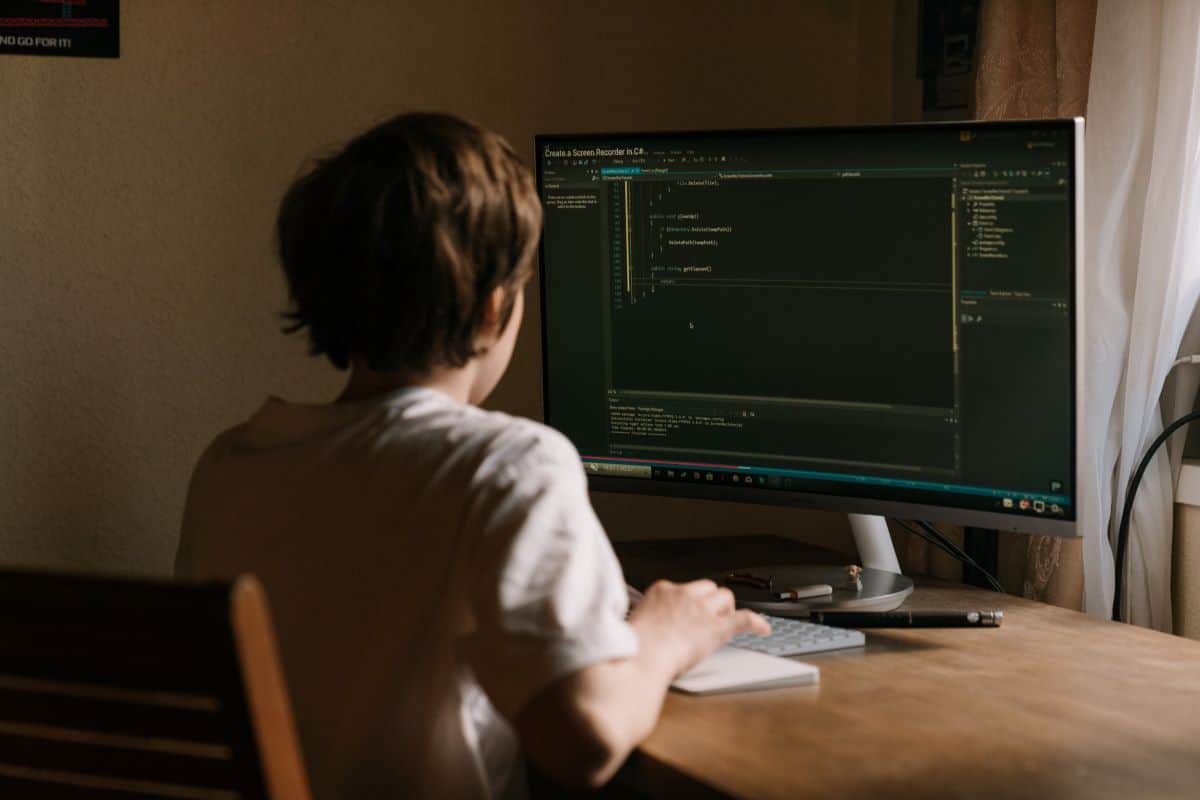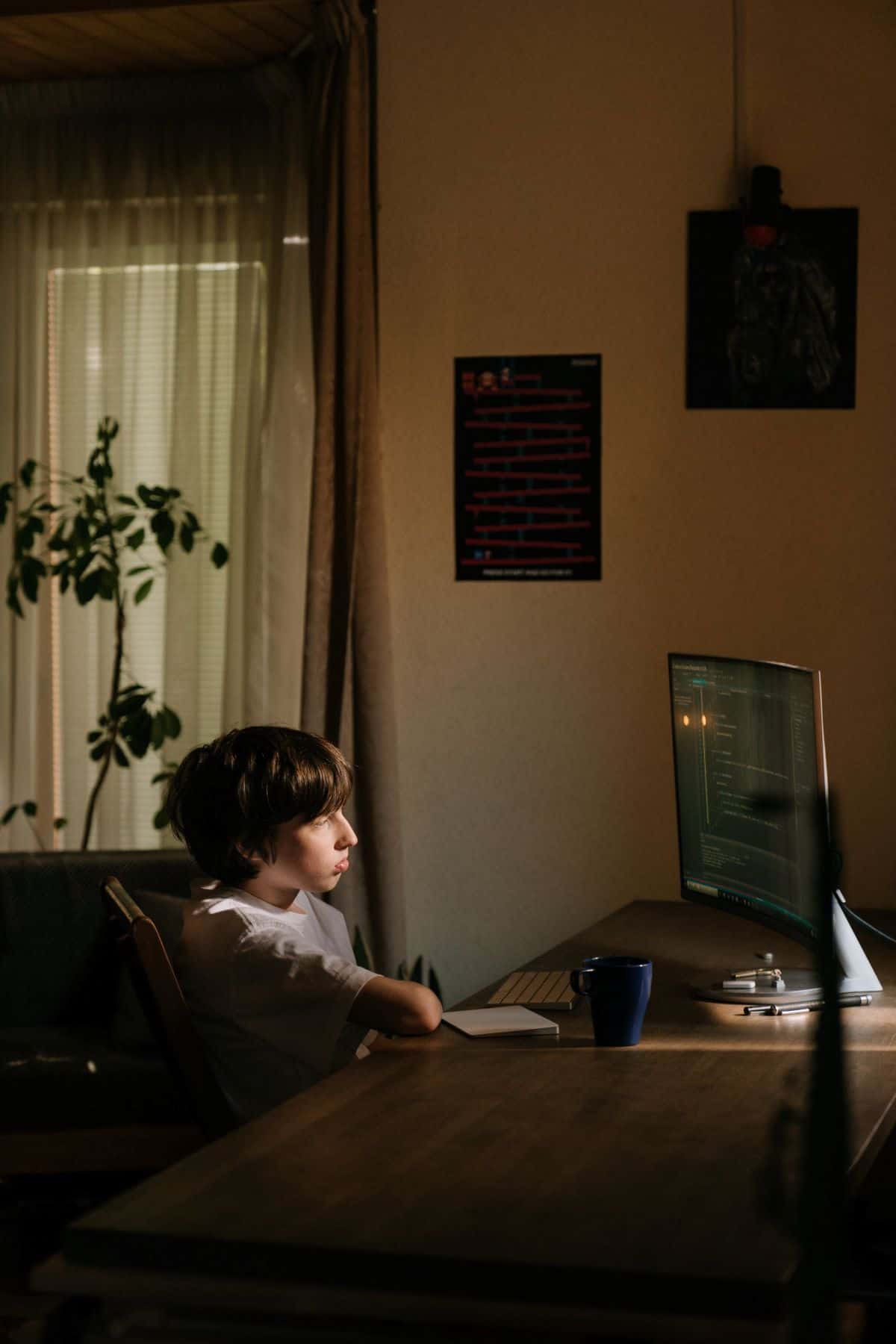Parents need to step in when their kids’ privacy is at stake. In this article, we’ll teach you 5 ways to teach kids about cybersecurity.
Two-thirds of Australians over the age of 15 have been exposed to a scam online. Cyberattacks are blowing up, partly thanks to the connectivity of our devices and mostly due to our lack of knowledge about online safety.
That’s why it’s paramount for children to understand how to protect themselves while browsing the internet, making accounts on social media, and even chatting with online friends.

1. The Foundation: Online Etiquette
Establishing a solid foundation begins with instilling online etiquette. Start by emphasizing the unspoken rules of the digital world – encourage your kids to respect others, avoid sharing personal details with strangers, and practice kindness in their online interactions.
Moreover, promote a healthy skepticism by teaching them to question the legitimacy of online information, fostering critical thinking skills that will serve them well in navigating the vast digital landscape.
2. Be Honest And Answer Their Questions
As your kids explore the internet, they might find weird stuff or have questions.
Make sure they feel okay talking to you about anything without worrying about getting in trouble. Every experience, good or not-so-great, is a chance to learn.

Remind them you're there to help and guide them, even if they mess up. It's all about keeping the communication lines open and giving them the support they need in their online adventures.
3. Use Real-life Examples
Don’t use unnecessarily complicated metaphors. Oftentimes, the best examples come from everyday interactions online.
Engage in conversations about current events and plausible scenarios your kids could face online.
Ensure they grasp the potential risks, even if others might ridicule them for being cautious.
4. Give Them Responsibilities
When children understand the basic aspects of staying safe online, it’s time to give them a few responsibilities.

Find a way to empower them as they navigate the internet and different social media platforms, perhaps by allowing them to manage their privacy settings or make informed decisions about what content to share.
5. Set Boundaries
Enjoying the internet doesn’t mean that kids get to spend all day on their devices. You can work time limits and the contact they can’t access. You should also determine which apps they can or can’t download.
If you’re patient and understanding, you can create a collaborative environment with your kids. Limits are a necessity, but make them understand they’re not missing out on anything.
Establish clear rules and boundaries for their online activities. Discuss screen time limits, appropriate content consumption, and the importance of asking for permission before downloading apps or signing up for new services.
You can also encourage them to read more about online security and understand why you apply certain restrictions.

3 Foolproof Strategies For Digital Safety
The numbers are dire. Australians have lost more than $3.1bn to scams in 2022 alone, according to the Australian Competition and Consumer Commission. It has increased by one billion from 2021.
Your kids should have practical strategies that they can use to navigate their social media platforms and other accounts safely.
1. The basics of password protection
Strong passwords are fundamental. Teach them how to create strong passwords using uppercase letters, numbers, and special symbols. You can even get a reliable password manager and help your kids set it up.
2. Spotting phishing attempts
Unfortunately, Australia isn’t an exception to the most popular cyberattack in the world. In fact, over 74.5 thousand of phishing incidents were reported in Australia in 2022 alone. It’s easy to spot a phishing attempt if you know what to look for, and your kids should know when to alert you if something is happening.

3. The importance of their privacy
Minors’ privacy online is also another topic of importance that is not nearly talked about enough. Educate your kids about their right to keep a private life and how to minimize the impact of sharing personal information on social media.
Protect them with reputable security tools and make sure their sensitive information is not shared publicly. If you’re not sure which security solution to invest in straight away, opt for a VPN free trial to test this encryption tool.
As we’ve stated before, we can’t ignore how crucial digital safety is nowadays. Starting the conversation with your children at the right time will empower them to enjoy the positive and educational sides of the internet.
As parents, we must set an example and educate our kids about online experiences. With so many threats lurking around, protecting minors from the internet threats is paramount.





Leave a Reply